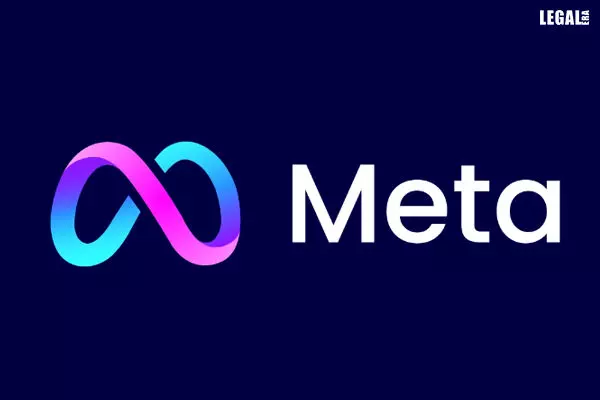- Home
- News
- Articles+
- Aerospace
- AI
- Agriculture
- Alternate Dispute Resolution
- Arbitration & Mediation
- Banking and Finance
- Bankruptcy
- Book Review
- Bribery & Corruption
- Commercial Litigation
- Competition Law
- Conference Reports
- Consumer Products
- Contract
- Corporate Governance
- Corporate Law
- Covid-19
- Cryptocurrency
- Cybersecurity
- Data Protection
- Defence
- Digital Economy
- E-commerce
- Employment Law
- Energy and Natural Resources
- Entertainment and Sports Law
- Environmental Law
- ESG
- FDI
- Food and Beverage
- Gaming
- Health Care
- IBC Diaries
- In Focus
- Inclusion & Diversity
- Insurance Law
- Intellectual Property
- International Law
- IP & Tech Era
- Know the Law
- Labour Laws
- Law & Policy and Regulation
- Litigation
- Litigation Funding
- Manufacturing
- Mergers & Acquisitions
- NFTs
- Privacy
- Private Equity
- Project Finance
- Real Estate
- Risk and Compliance
- Student Corner
- Take On Board
- Tax
- Technology Media and Telecom
- Tributes
- Viewpoint
- Zoom In
- Law Firms
- In-House
- Rankings
- E-Magazine
- Legal Era TV
- Events
- News
- Articles
- Aerospace
- AI
- Agriculture
- Alternate Dispute Resolution
- Arbitration & Mediation
- Banking and Finance
- Bankruptcy
- Book Review
- Bribery & Corruption
- Commercial Litigation
- Competition Law
- Conference Reports
- Consumer Products
- Contract
- Corporate Governance
- Corporate Law
- Covid-19
- Cryptocurrency
- Cybersecurity
- Data Protection
- Defence
- Digital Economy
- E-commerce
- Employment Law
- Energy and Natural Resources
- Entertainment and Sports Law
- Environmental Law
- ESG
- FDI
- Food and Beverage
- Gaming
- Health Care
- IBC Diaries
- In Focus
- Inclusion & Diversity
- Insurance Law
- Intellectual Property
- International Law
- IP & Tech Era
- Know the Law
- Labour Laws
- Law & Policy and Regulation
- Litigation
- Litigation Funding
- Manufacturing
- Mergers & Acquisitions
- NFTs
- Privacy
- Private Equity
- Project Finance
- Real Estate
- Risk and Compliance
- Student Corner
- Take On Board
- Tax
- Technology Media and Telecom
- Tributes
- Viewpoint
- Zoom In
- Law Firms
- In-House
- Rankings
- E-Magazine
- Legal Era TV
- Events
US Court Allows FTC’s Lawsuit Against Meta For Social Media Monopoly

US Court Allows FTC’s Lawsuit Against Meta For Social Media Monopoly
It is among the cases wherein antitrust regulators are going after Big Tech
The US District Court for the District of Columbia has ruled that the lawsuit by the Federal Trade Commission (FTC) against Meta Platforms, alleging the company illegally maintained a social media monopoly, can proceed to trial.
The FTC claimed that Meta's acquisitions of Instagram and WhatsApp eliminated competition, a claim that Meta disputed, arguing that the purchases benefited consumers.
Judge James Boasberg largely denied Meta's motion to end the case filed against Facebook in 2020, during then-President Donald Trump’s administration, alleging the company acted illegally to maintain its social network monopoly.
The FTC added that Meta (earlier Facebook), overpaid for Instagram in 2012 and WhatsApp in 2014 to eliminate nascent threats instead of competing in the mobile ecosystem.
While Judge Boasberg admitted the claim, he dismissed the FTC allegation that Facebook bolstered its dominance by restricting third-party app developers' access to the platform unless they agreed not to compete with its core services.
Meanwhile, a spokesperson for Meta remarked, "We are confident that the evidence at trial will show that the acquisitions of Instagram and WhatsApp have been good for competition and consumers.”
On the other hand, FTC spokesperson Douglas Farrar stated, "It represents a bipartisan effort to curtail Meta's monopoly power and restore competition to ensure freedom and innovation in the social media ecosystem."
Meanwhile, the judge clarified that at trial, Meta would not be allowed to argue the WhatsApp acquisition-boosted competition by strengthening its position against Apple and Google.
He added that a detailed order would be released after FTC and Meta were given the opportunity to redact any sensitive commercial information.
Meta had urged the court to dismiss the case, arguing that it depended on a narrow view of social media markets and did not consider competition from ByteDance's TikTok, Google's YouTube and X, and Microsoft's LinkedIn.
The case is one of five major lawsuits by antitrust regulators FTC and the Department of Justice (DoJ) against Big Tech.
Amazon.com Inc and Apple are both being sued, and Google faces two lawsuits, including a recent one, where the court noted it unlawfully thwarted competition among online search engines.



